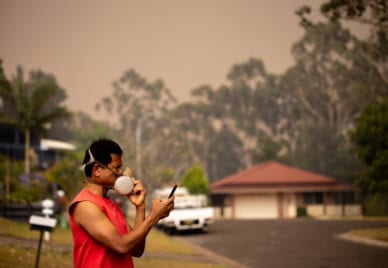
Aggregating and Integrating Data on Health Outcomes Associated with Bushfires at a National Scale
Exploreabout Aggregating and Integrating Data on Health Outcomes Associated with Bushfires at a National Scale
Australia’s 4 poisons information centres (PICs) receive more than 200,000 calls a year, however their databases are not coordinated, making the compilation of national data labour intensive and complex. The challenge is to harmonise the PIC datasets, to provide a national service to healthcare professionals and the public.
Improving access to poisoning data will inform research as well as accurate and timely responses to drug and product safety, suicide and injury prevention and paediatric poisonings.
A national PIC dataset will be developed covering the entirety of poisons centre data in Australia from all 4 PICs and 8 jurisdictions.
Detailed data on each poisoning call will be standardised and captured in a secure application to deliver an Australian PIC dataset that includes exposure, demographic, clinical and advice details, all vital tools for public health surveillance and research. Formalised governance and access procedures will provide users with clarity and ensure timely access to the data.
Researchers and government agencies will benefit from more efficient and timely access to real time, harmonised national PIC data to inform poisons research and public health responses.
Our partners are:
This project will give researchers more efficient and timely access to national PIC data through a new Australian poisoning dataset.